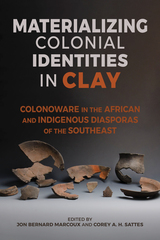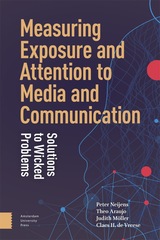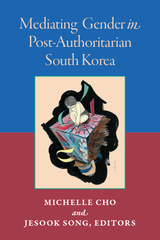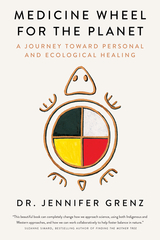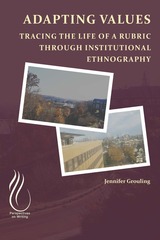
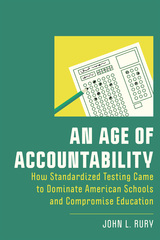
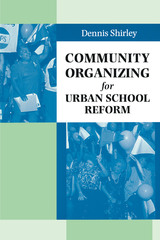
Observers of all political persuasions agree that our urban schools are in a state of crisis. Yet most efforts at school reform treat schools as isolated institutions, disconnected from the communities in which they are embedded and insulated from the political realities which surround them.
Community Organizing for Urban School Reform tells the story of a radically different approach to educational change. Using a case study approach, Dennis Shirley describes how working-class parents, public school teachers, clergy, social workers, business partners, and a host of other engaged citizens have worked to improve education in inner-city schools. Their combined efforts are linked through the community organizations of the Industrial Areas Foundation, which have developed a network of over seventy "Alliance Schools" in poor and working-class neighborhoods throughout Texas. This deeply democratic struggle for school reform contains important lessons for all of the nation's urban areas. It provides a striking point of contrast to orthodox models of change and places the political empowerment of low-income parents at the heart of genuine school improvement and civic renewal.
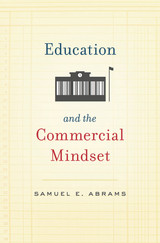
America’s commitment to public schooling once seemed unshakable. But today the movement to privatize K–12 education is stronger than ever. Samuel E. Abrams examines the rise of market forces in public education and reveals how a commercial mindset has taken over.
“[An] outstanding book.”
—Carol Burris, Washington Post
“Given the near-complete absence of public information and debate about the stealth effort to privatize public schools, this is the right time for the appearance of [this book]. Samuel E. Abrams, a veteran teacher and administrator, has written an elegant analysis of the workings of market forces in education.”
—Diane Ravitch, New York Review of Books
“Education and the Commercial Mindset provides the most detailed and comprehensive analysis of the school privatization movement to date. Students of American education will learn a great deal from it.”
—Leo Casey, Dissent

In 2002 the No Child Left Behind Act rocked America's schools with new initiatives for results-based accountability. But years before NCLB was signed, a new movement was already under way by mayors to take control of city schools from school boards and integrate the management of public education with the overall governing of the city. The Education Mayor is a critical look at mayoral control of urban school districts, beginning with Boston's schools in 1992 and examining more than 100 school districts in 40 states.
The authors seek to answer four central questions: • What does school governance look like under mayoral leadership? • How does mayoral control affect school and student performance? • What are the key factors for success or failure of integrated governance? • How does mayoral control effect practical changes in schools and classrooms?
The results of their examination indicate that, although mayoral control of schools may not be appropriate for every district, it can successfully emphasize accountability across the education system, providing more leverage for each school district to strengthen its educational infrastructure and improve student performance. Based on extensive quantitative data as well as case studies, this analytical study provides a balanced look at America's education reform.
As the first multidistrict empirical examination and most comprehensive overall evaluation of mayoral school reform, The Education Mayor is a must-read for academics, policymakers, educational administrators, and civic and political leaders concerned about public education.
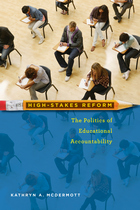
Performance accountability has been the dominant trend in education policy reform since the 1970s. State and federal policies set standards for what students should learn; require students to take “high-stakes” tests to measure what they have learned; and then hold students, schools, and school districts accountable for their performance. The goal of these policies is to push public school districts to ensure that all students reach a common threshold of knowledge and skills.
High-Stakes Reform analyzes the political processes and historical context that led to the enactment of state-level education accountability policies across the country. It also situates the education accountability movement in the broader context of public administration research, emphasizing the relationships among equity, accountability, and intergovernmental relations. The book then focuses on three in-depth case studies of policy development in Massachusetts, New Jersey, and Connecticut. Kathryn McDermott zeroes in on the most controversial and politically charged forms of state performance accountability sanctions, including graduation tests, direct state intervention in or closing of schools, and state takeovers of school districts.
Public debate casts performance accountability as either a cure for the problems of US public education or a destructive mistake. Kathryn McDermott expertly navigates both sides of the debate detailing why particular policies became popular, how the assumptions behind the policies influenced the forms they took, and what practitioners and scholars can learn from the successes and failures of education accountability policies.
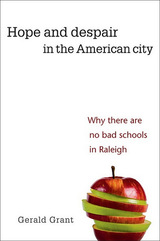
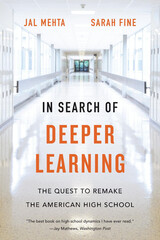
Winner of the Grawemeyer Award
“In their brave search for depth in American high schools, scholars Jal Mehta and Sarah Fine suffered many disappointments…Undeterred, they spent 750 hours observing classes, interviewed more than 300 people, and produced the best book on high school dynamics I have ever read.”
—Jay Mathews, Washington Post
“A hopeful, easy-to-read narrative on what the best teachers do and what deep, engaging learning looks like for students. Grab this text if you’re looking for a celebration of what’s possible in American schools.”
—Edutopia
“This is the first and only book to depict not just the constraints on good teaching, but also how good teachers transcend them. A superb book in every way: timely, lively, and entertaining.”
—Jonathan Zimmerman, University of Pennsylvania
What would it take to transform our high schools into places capable of supporting deep learning for students across a wide range of aptitudes and interests? To find out, Jal Mehta and Sarah Fine spent hundreds of hours observing and talking to teachers and students in and out of the classroom at thirty of the country’s most innovative schools. To their dismay, they discovered that deeper learning is more often the exception than the rule. And yet they found pockets of powerful learning at almost every school, often in extracurriculars but also in a few mold-breaking academic courses. So what must schools do to achieve the integrations that support deep learning: rigor with joy, precision with play, mastery with identity and creativity?
In Search of Deeper Learning takes a deep dive into the state of our schools and lays out an inspiring new vision for American education.
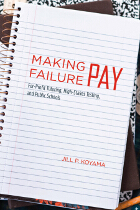
A little-discussed aspect of the No Child Left Behind Act (NCLB) is a mandate that requires failing schools to hire after-school tutoring companies—the largest of which are private, for-profit corporations—and to pay them with federal funds. Making Failure Pay takes a hard look at the implications of this new blurring of the boundaries between government, schools, and commerce in New York City, the country’s largest school district.
As Jill P. Koyama explains in this revelatory book, NCLB—a federally legislated, state-regulated, district-administered, and school-applied policy—explicitly legitimizes giving private organizations significant roles in public education. Based on her three years of ethnographic fieldwork, Koyama finds that the results are political, problematic, and highly profitable. Bringing to light these unproven, unregulated private companies’ almost invisible partnership with the government, Making Failure Pay lays bare the unintended consequences of federal efforts to eliminate school failure—not the least of which is more failure.
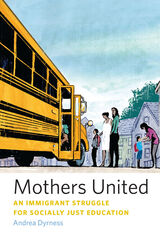
In Mothers United, Andrea Dyrness chronicles the experiences of five Latina immigrant mothers in Oakland, California—one of the most troubled urban school districts in the country—as they become informed and engaged advocates for their children’s education. These women, who called themselves “Madres Unidas” (“Mothers United”), joined a neighborhood group of teachers and parents to plan a new, small, and autonomous neighborhood-based school to replace the overcrowded Whitman School. Collaborating with the author, among others, to conduct interviews and focus groups with teachers, parents, and students, these mothers moved from isolation and marginality to take on unfamiliar roles as researchers and community activists while facing resistance from within the local school district.
Mothers United illuminates the mothers’ journey to create their own space—centered around the kitchen table—that enhanced their capacity to improve their children’s lives. At the same time, Dyrness critiques how community organizers, teachers, and educational policy makers, despite their democratic rhetoric, repeatedly asserted their right as “experts,” reproducing the injustice they hoped to overcome. A powerful, inspiring story about self-learning, consciousness-raising, and empowerment, Mothers United offers important lessons for school reform movements everywhere.
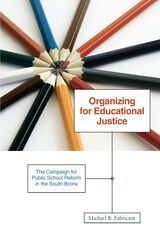
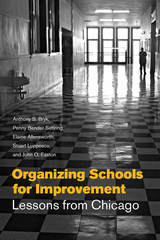
In 1988, the Chicago public school system decentralized, granting parents and communities significant resources and authority to reform their schools in dramatic ways. To track the effects of this bold experiment, the authors of Organizing Schools for Improvement collected a wealth of data on elementary schools in Chicago. Over a seven-year period they identified one hundred elementary schools that had substantially improved—and one hundred that had not. What did the successful schools do to accelerate student learning?
The authors of this illuminating book identify a comprehensive set of practices and conditions that were key factors for improvement, including school leadership, the professional capacity of the faculty and staff, and a student-centered learning climate. In addition, they analyze the impact of social dynamics, including crime, critically examining the inextricable link between schools and their communities. Putting their data onto a more human scale, they also chronicle the stories of two neighboring schools with very different trajectories. The lessons gleaned from this groundbreaking study will be invaluable for anyone involved with urban education.

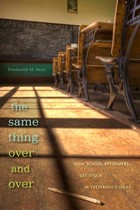
In this genial and challenging overview of endless debates over school reform, Rick Hess shows that even bitter opponents in debates about how to improve schools agree on much more than they realize—and that much of it must change radically. Cutting through the tangled thickets of right- and left-wing dogma, he clears the ground for transformation of the American school system.
Whatever they think of school vouchers or charter schools, teacher merit pay or bilingual education, most educators and advocates take many other things for granted. The one-teacher–one-classroom model. The professional full-time teacher. Students grouped in age-defined grades. The nine-month calendar. Top-down local district control. All were innovative and exciting—in the nineteenth century. As Hess shows, the system hasn’t changed since most Americans lived on farms and in villages, since school taught you to read, write, and do arithmetic, and since only an elite went to high school, let alone college.
Arguing that a fundamentally nineteenth century system can’t be right for a twenty-first century world, Hess suggests that uniformity gets in the way of quality, and urges us to create a much wider variety of schools, to meet a greater range of needs for different kinds of talents, needed by a vastly more complex and demanding society.

The authors of this volume emphasize that assessment, as it exists in schools today, consists mainly of the measurements that teachers themselves design, evaluate, and act upon every day. Improving the usefulness of assessment in schools primarily requires assisting and harnessing this flood of assessment information, both as a means of learning within the classroom and as the source of crucial information flowing out of classrooms.
This volume aims to encourage debate and reflection among educational researchers, professionals, and policymakers. Five source chapters describe successful classroom assessment models developed in partnership with teachers, while additional commentaries give a range of perspectives on the issues of classroom assessment, standardized testing, and accountability.
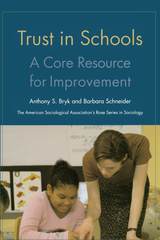

READERS
Browse our collection.
PUBLISHERS
See BiblioVault's publisher services.
STUDENT SERVICES
Files for college accessibility offices.
UChicago Accessibility Resources
home | accessibility | search | about | contact us
BiblioVault ® 2001 - 2024
The University of Chicago Press


